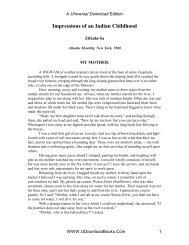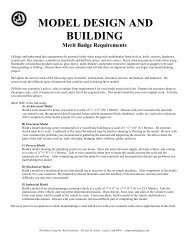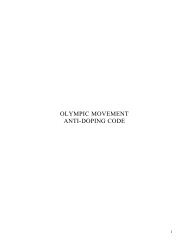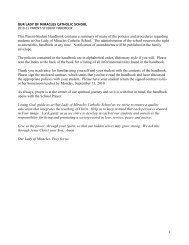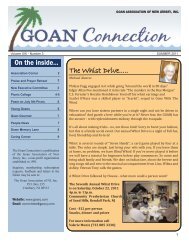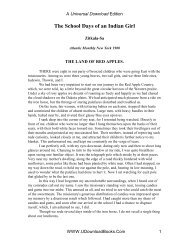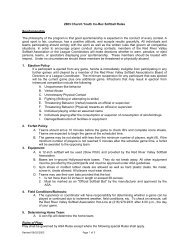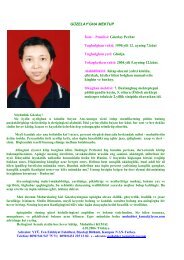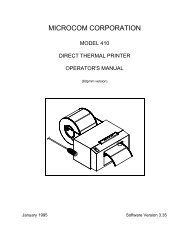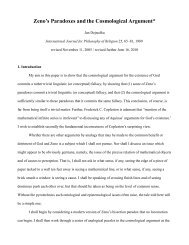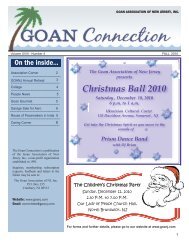Dummett's Backward Road to Frege and to Intuitionism - Tripod
Dummett's Backward Road to Frege and to Intuitionism - Tripod
Dummett's Backward Road to Frege and to Intuitionism - Tripod
Create successful ePaper yourself
Turn your PDF publications into a flip-book with our unique Google optimized e-Paper software.
only <strong>to</strong> use names. But I think he may admit three systematic shifts of his referential use of names.<br />
First, I argue elsewhere that for <strong>Frege</strong>, identity statements assert that two names refer <strong>to</strong> the same<br />
reference (my 2003: 42–65; 1981: 31–36; 1979: 34–50). If so, <strong>Frege</strong>’s identity statements are<br />
metalinguistic, yet occur within the formal notation; he has a formal identity sign. My view implies that<br />
<strong>Frege</strong> quantifies over names as objects in (∃x)x = a. In my (2003: 54), I see this as a formal oddity, a<br />
systematic shift of reference in identity contexts, <strong>and</strong> technically harmless for doing proofs. Now, the<br />
identity sign is one of the eight primitive terms. That is because definitions are identity stipulations that<br />
two names express the same sense <strong>and</strong> refer <strong>to</strong> the same reference, so that definition always<br />
presupposes identity (<strong>Frege</strong> 1970c: 80–81). And <strong>Frege</strong> has a formal definition sign as well. Second,<br />
then, all definitions in the formal notation are metalinguistic. Thus on my view, both asserted identities<br />
<strong>and</strong> stipulated identities are metalinguistic, yet within the formal notation. Third, <strong>Frege</strong> says “there are<br />
two wholly different cases [where] we speak of existence....In the one case the question is whether a<br />
proper name designates...; in the other, whether a concept takes objects under itself” (<strong>Frege</strong> 1970: 104).<br />
Surely it would be odd if <strong>Frege</strong> could not state his own first kind of legitimate existence-talk in his own<br />
notation by a systematic reference shift, or simply by introducing names of names <strong>and</strong> a name for<br />
designation.<br />
<strong>Frege</strong>’s quantifiers do not presuppose names or objects. <strong>Frege</strong> is very clear on which eight<br />
logical names are primitive. They include the universal quantifier <strong>and</strong> negation, <strong>and</strong> he defines the<br />
existential quantifier directly in terms of them. One must not be confused by the regimentations. They<br />
are not definitions. He provides them precisely for his primitive names, which already have<br />
explications.<br />
Is there any circularity in the informal explications of <strong>Frege</strong>’s primitive logical names? Due <strong>to</strong><br />
the logically contingent nature of explication, the answer must be no, even if some terms which are or<br />
later become defined terms are used or presupposed in the explication of a primitive term. Thus I am<br />
68




